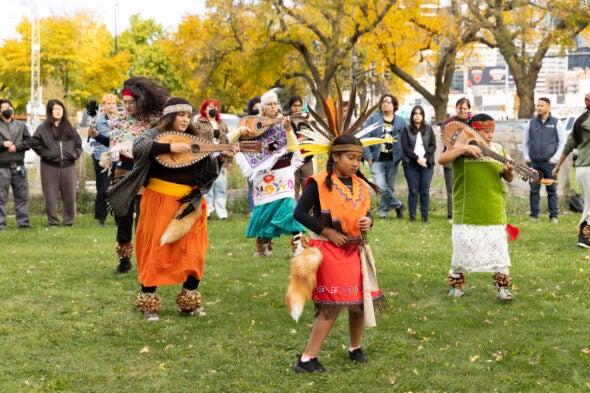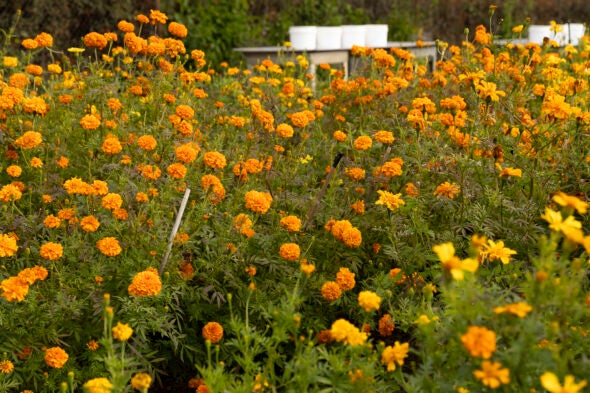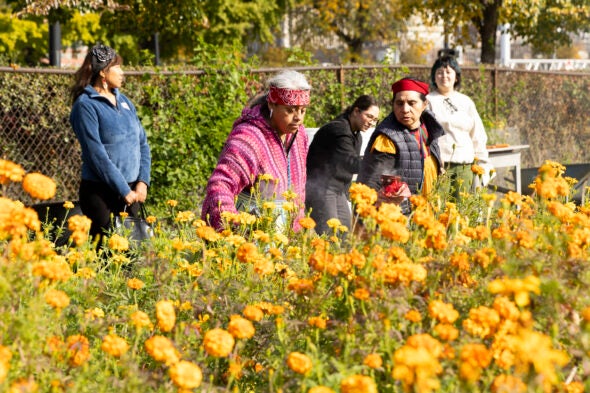UIC Greenhouse and Field Museum prepare for Day of the Dead celebrations
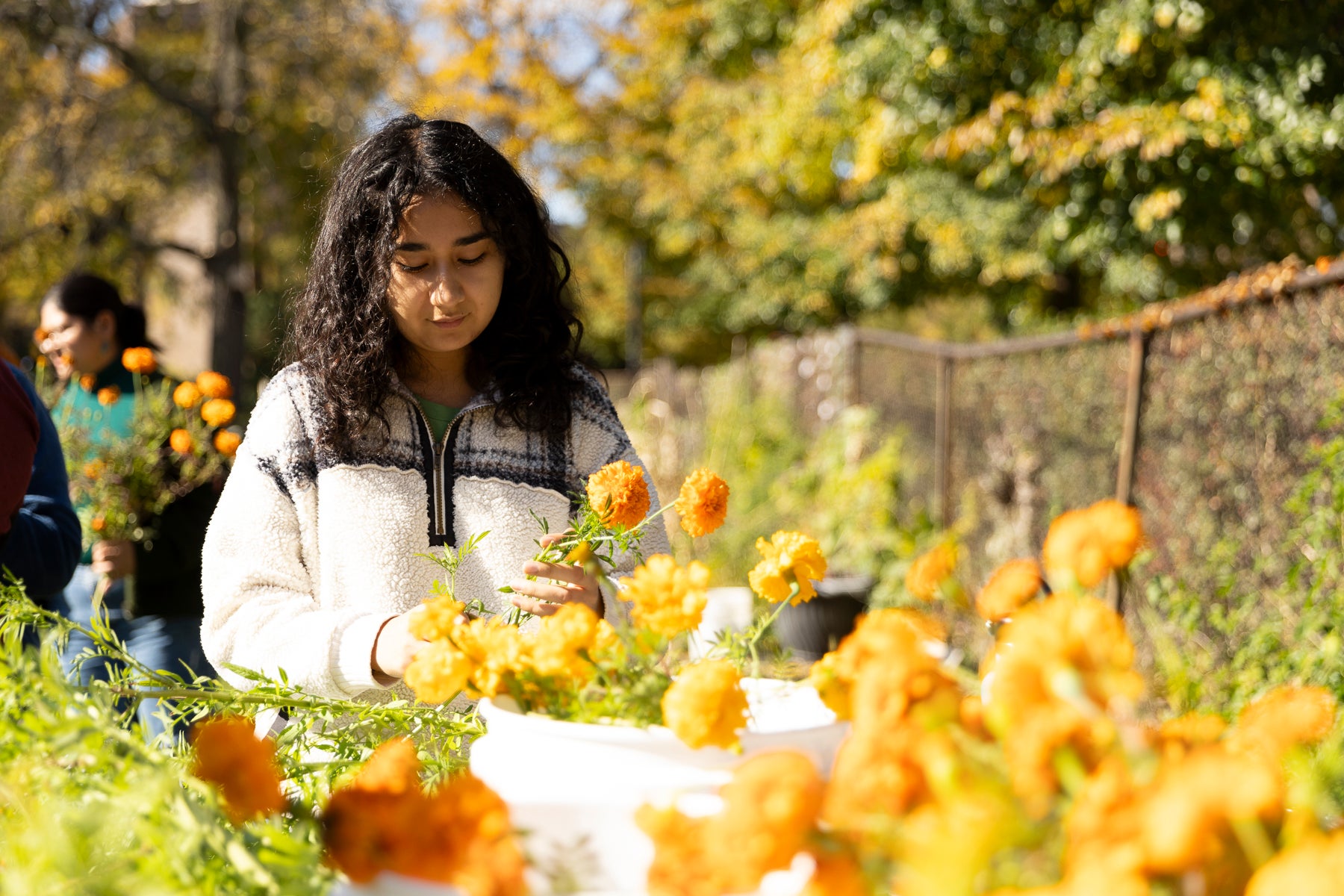
Dressed in Indigenous clothing and singing in Spanish, members of the community group Tiahui Chicago danced to drumbeats outside the UIC Greenhouse recently, the shells tied around their ankles shaking and jingling with their steps.
The dancing was part of a ceremonial blessing of hundreds of marigolds, grown over the summer by greenhouse staff and UIC students in partnership with the Field Museum’s Keller Science Action Center. Marigolds play a leading role in the Mexican day of remembrance, Dia de los Muertos, or Day of the Dead. They are used to decorate ofrendas, or altars, that people create to remember their departed family and friends.
After the ceremony at the greenhouse Wednesday, about 1,000 flowers were harvested and banded together for Day of the Dead celebrations in the area.
“It’s a collaboration we’ve done with the Field Museum for more than five years,” said Matthew Frazel, manager of the UIC Greenhouse. “We grow native plants with them here at the greenhouse, and then they distribute them to community groups and organizations doing native plantings.”
Jacob Campbell, an environmental anthropologist at the Field Museum and an adjunct lecturer in UIC’s department of anthropology, said the longtime relationship with the UIC Greenhouse provides a wide range of community organizations, including the Chicago Park District, with native plants to place in culturally themed spaces. The Aztec marigold flowers grown at UIC’s Plant Research Laboratory will be dispensed to the Burnham Wildlife Corridor on the lakefront for Day of the Dead celebrations.
“Today, we are here to bless and honor the flowers and ourselves with danzas (dances) with one of the partners from the community. Then, we will cut and trim and prepare the flowers,” Campbell said. “They’re often used in ofrendas (offerings) and altars honoring people who have passed the prior year, and honoring ancestors. They are a color and symbol of that remembrance.”
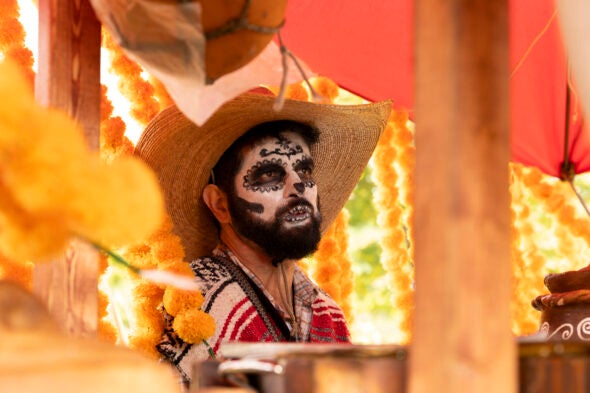
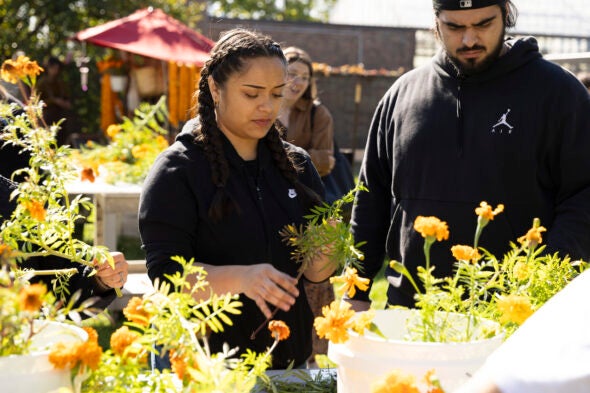
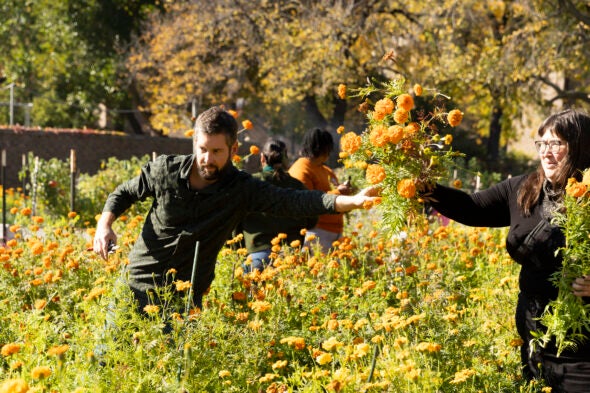
Rene Diaz, a founder of Tiahui Chicago and a UIC alum, said UIC’s involvement in growing the flowers has been pivotal for the Mexican community because of the flower’s role in the holiday. The holiday, celebrated in late October or early November, honors the lives of the deceased and the connection between life and death, he said.
“UIC is a very huge partner,” Diaz said. “This is a community university, and this is a way to bring the community in here and do some authentic community engagement.”
Some of the flowers were to be used over the weekend to adorn altars set up in the wildlife corridor’s La Ronda Parakata, where a sculpture was installed by Mexican artists celebrating the monarch butterfly.
“During the Day of the Dead, it becomes an altar, so we decorate it with these marigolds,” Diaz said. “This is to remember those who have passed on, and we honor them.”
Isabel Cervantes, a second-year student in environmental engineering, helped harvest the flowers. After carefully cutting them with garden shears, she pulled excess foliage from their stems. She said joining the other volunteers allowed her to celebrate her Mexican culture.
“I feel grateful to have a chance to be surrounded by others and cultivate these flowers that mean a lot to us,” Cervantes said.
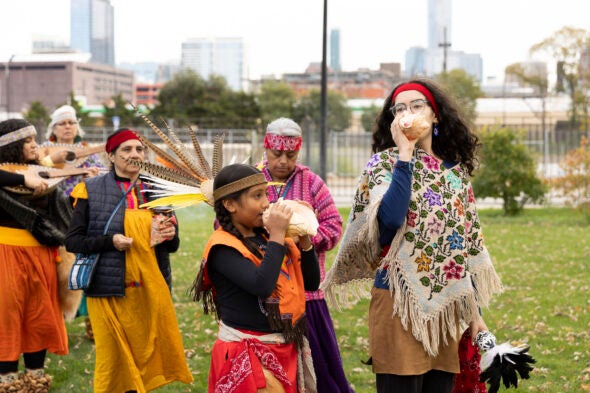
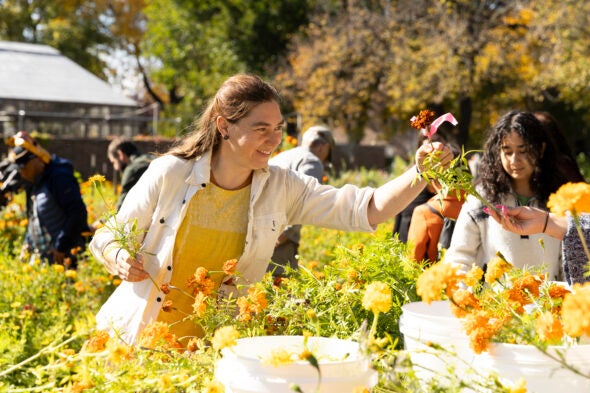
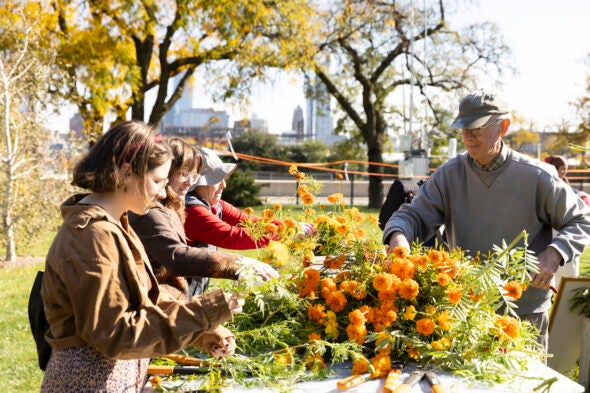
Efrain Rojas, a fourth-year student studying political science and criminology, said he was present to show support with members of UIC’s Latino Cultural Center and Heritage Garden. He said the connection with the environment is important because environmental justice has been an essential issue in Latino neighborhoods.
“This is a mix of environmental and Latino cultural aspects,” Rojas said.
Growing up in Mexico, Valeria Silva, a third-year student studying psychology, understood the importance of the Day of the Dead. Her parents emphasized the day as an important time for her to honor her grandparents and other ancestors who had died.
For the last three years, she has participated in the flower-cutting ceremony to remind herself of those times in Mexico and to continue honoring her ancestors. She said she was proud of UIC’s role in continuing her customs.
“It makes me really happy to know that UIC is part of this and that they appreciate different cultures,” Silva said.
